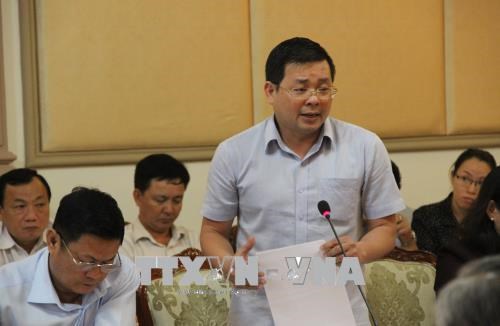May 03, 2018 | 20:42 (GMT+7)
HCM City leads in waste management and treatment
Ho Chi Minh City is leading the nation in the management and treatment of household and animal husbandry waste, said officials from the National Assembly’s Committee for Science, Technology and Environment at a working session with the municipal authorities on May 2.
Phan Xuan Dung, head of the committee, noted the Southern economic hub is also taking the lead in waste classification across its 24 districts, and in the promotion of businesses’ investments in advanced waste treatment technologies.
    |
 |
|
Director of the municipal Department of Natural Resources and Environment Nguyen Toan Thang |
Dung said the city will need to further reduce the rate of buried waste while increasing the rate of incineration, particularly in turning waste into electricity.
Huynh Cach Mang, Vice Chairman of the municipal People’s Council, said the city will issue prices of garbage collection services this May, adding that local efforts have been poured into the treatment of industrial wastewater.
Industrial wastewater is planned to be treated in 11 drainage basins, of which two are under construction and two are calling for investments. Local industrial parks have their own wastewater assessment centers to send data to the municipal Department of Natural Resources and Environment.
According to Nguyen Toan Thang, Director of the municipal Department of Natural Resources and Environment, the city collects and treats about 8,900 tons of household solid waste per day. The waste is treated at the 687-ha Tay Bac waste treatment complex in Cu Chi district and the 614-ha Da Phuoc waste treatment complex in Binh Chanh district. The local rate of buried waste is 69 percent, while that of burned and recycled garbage is 31 percent.
A significant number of conferences have been held in the city to attract investment into the sector. As a result, the city has approved a project on using plasma gasification and waste-to-energy technologies to treat solid waste, which is invested by Sydney-based Trisun Green Energy Corporation.
Ho Chi Minh City is also working with the Mekong Delta province of Long An to build a green-tech park that spans 1,760 hectares in Long An’s Thu Thua district to treat solid waste in the southern region.
Source: VNA